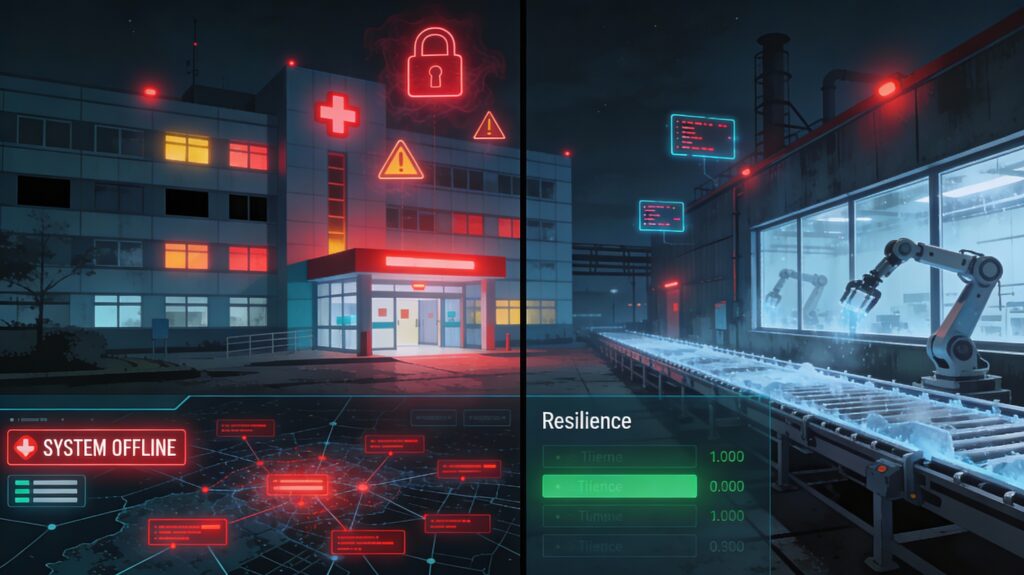Summer vacation season presents a perfect storm of cybersecurity challenges for organizations worldwide. While employees enjoy well-deserved time off, cybercriminals are ramping up their efforts, taking advantage of reduced staffing, delayed incident response capabilities, and relaxed end-user vigilance. With 85% of organizations scaling down their security operations center staffing during holidays and weekends, the summer months have become a prime hunting season for threat actors.
The Summer Vulnerability Window
Reduced Security Oversight
During summer months, IT and security teams often operate with significantly reduced headcount as vacation schedules roll out1. This creates extended windows of opportunity for adversaries to move laterally, escalate privileges, or establish persistent access. The problem is compounded by the fact that fewer resources are available to monitor logs, respond to alerts, or review anomalous activity when key personnel are on leave.
Increased Attack Surface
Summer brings unique security challenges beyond just staffing issues. Organizations face increased risks from employees working remotely during vacations, accessing company systems from unsecured public Wi-Fi networks, and using personal devices in unfamiliar environments. Cybercriminals specifically target this season with phishing campaigns disguised as travel deals, shipping alerts, and vacation rental confirmations.
The Security Awareness Decline
Just as students experience “summer slide” in academic skills during extended breaks, security awareness can similarly decline during the more relaxed summer atmosphere. Summer often leads to more casual communication patterns, making phishing attempts harder to spot, and employees may become less vigilant about security protocols when operating in “vacation mode”.
Building Effective Skeleton Crews for Security Operations
Strategic Personnel Selection
Creating an effective security skeleton crew requires systematic identification of essential functions and personnel. Organizations should conduct a business impact analysis to determine which security functions are truly critical during reduced-staffing periods. Key considerations include technical expertise, decision-making authority, geographic proximity to work locations, and cross-training capabilities.
Optimized Shift Patterns
Skeleton crew scheduling differs significantly from normal operations, often requiring extended shifts and alternative work patterns. Organizations should design shift patterns that balance operational needs with staff endurance, incorporating mandatory rest periods to prevent fatigue in critical security roles. Rotation planning helps distribute workload fairly among qualified personnel throughout the summer period.
Cross-Training and Succession Planning
Effective skeleton crew management requires identifying employees with cross-training capabilities who can fulfill multiple security roles during emergencies. Organizations should maintain skills inventories and develop clear succession plans for key security positions to ensure continuity if primary skeleton crew members become unavailable.
Leveraging Automated Monitoring Solutions
Continuous Security Monitoring Tools
With reduced human oversight, automated monitoring becomes critical during summer months. Modern cybersecurity platforms employ machine learning algorithms to detect unusual behavior within network traffic, user activities, and system operations without requiring constant human oversight. These systems continuously monitor for deviations from established norms, enabling early threat identification even with skeleton crews.
Real-Time Alert Systems
Advanced cybersecurity solutions offer real-time alerts that notify security teams immediately when potential threats are detected4. These instant notifications ensure teams can respond quickly even during off-hours or periods of reduced staffing. Automated detection systems can mitigate threats before they cause significant damage by catching anomalies early in the attack lifecycle.
Behavioral Analytics Implementation
Behavioral analytics tools analyze historical data to establish baselines of normal activities for users, applications, and devices4. This approach helps identify anomalies that may signal security threats, allowing security teams to focus on genuine threats rather than sifting through false positives. These systems are particularly valuable during summer when reduced staffing makes manual log analysis impractical.
Crisis-Ready Incident Response Planning
Holiday-Specific Response Plans
Organizations need detailed, tested incident response plans that include specific holiday contingencies. These plans should designate on-call staff and include procedures for external support activation when internal resources are limited. Regular tabletop exercises should include key executives and stakeholders, ensuring everyone understands their role during summer incidents.
Rapid External Support Integration
When ransomware or other critical incidents occur during summer periods, speed and expertise become essential. Organizations should pre-establish relationships with external incident response providers who can be rapidly engaged when internal skeleton crews face major security events. Having these partnerships in place before emergencies occur can make the difference between containment and catastrophe.
Automated Response Capabilities
Modern incident response planning increasingly incorporates automation and AI to speed up response times and reduce errors. Automated response systems can initiate immediate containment measures, such as isolating compromised systems or blocking malicious traffic, buying time for human responders to assess and address the full scope of incidents.
Preventing the Summer Security Slide
Continuous Awareness Training
Organizations should implement microtraining programs and phishing simulations that continue throughout the summer months. These bite-sized security awareness activities help maintain vigilance even when key personnel are rotating in and out on vacation schedules. Consistent security awareness training is essential to prevent breaches during peak vacation months when fewer eyes are on inboxes.
Pre-Vacation Security Protocols
Establishing clear pre-vacation security protocols can significantly reduce summer risks. Employees should complete security awareness training updates before leaving, ensure proper backup procedures are followed, and secure physical workspaces by locking up important documents and properly disposing of unnecessary paperwork.
Travel Security Guidelines
Organizations should provide comprehensive travel security guidelines covering public Wi-Fi risks, device security, and social media best practices. Key recommendations include using VPNs when connecting to public networks, keeping devices physically secure, and avoiding real-time social media posts that advertise absence from home or office.
Actionable Summer Security Recommendations
Immediate Actions
-
Conduct skeleton crew identification exercises before peak vacation season begins
-
Update and test incident response plans with holiday-specific scenarios
-
Implement automated monitoring solutions to compensate for reduced human oversight
-
Establish pre-vacation security checklists for all employees
Medium-Term Investments
-
Deploy behavioral analytics tools to improve threat detection with reduced staffing
-
Develop cross-training programs to increase workforce flexibility during vacations
-
Create partnerships with external incident response providers for emergency support
-
Implement continuous security awareness training programs
Long-Term Strategic Planning
-
Integrate summer security considerations into annual business continuity planning
-
Develop metrics to measure security posture effectiveness during reduced-staffing periods
-
Establish post-incident analysis processes specifically for summer security events
-
Create dynamic scheduling systems that can rapidly adapt to changing summer conditions
Wrapping It Up
Summer doesn’t have to mean compromised security. By acknowledging the unique challenges of vacation season and implementing proactive strategies around skeleton crew management, automated monitoring, and continuous awareness training, organizations can maintain robust security postures even when key personnel are enjoying their well-deserved time off. The key is preparation, automation, and ensuring that security remains a priority even when the office atmosphere becomes more relaxed.



